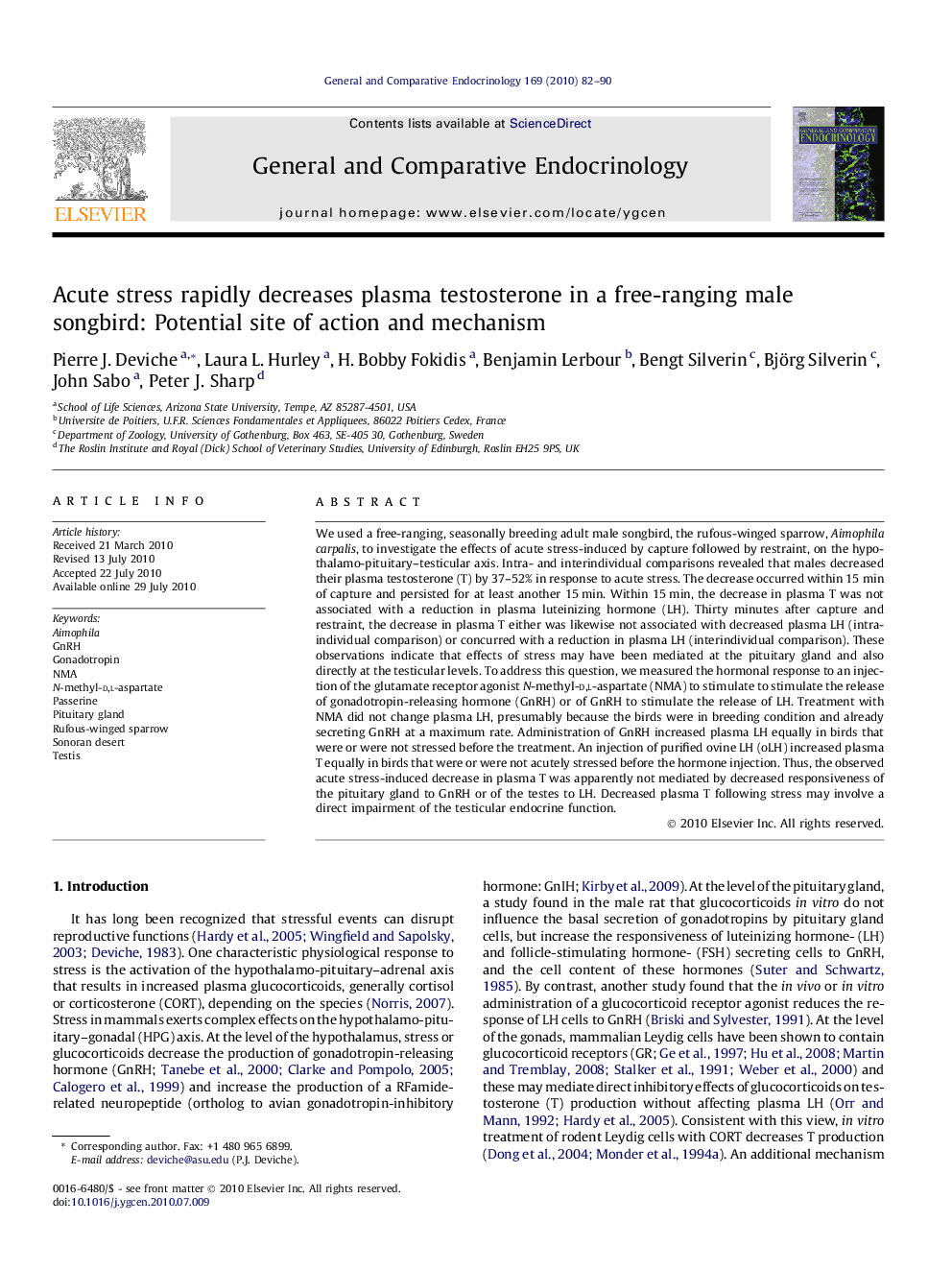| کد مقاله | کد نشریه | سال انتشار | مقاله انگلیسی | نسخه تمام متن |
|---|---|---|---|---|
| 2801189 | 1156146 | 2010 | 9 صفحه PDF | دانلود رایگان |

We used a free-ranging, seasonally breeding adult male songbird, the rufous-winged sparrow, Aimophila carpalis, to investigate the effects of acute stress-induced by capture followed by restraint, on the hypothalamo-pituitary–testicular axis. Intra- and interindividual comparisons revealed that males decreased their plasma testosterone (T) by 37–52% in response to acute stress. The decrease occurred within 15 min of capture and persisted for at least another 15 min. Within 15 min, the decrease in plasma T was not associated with a reduction in plasma luteinizing hormone (LH). Thirty minutes after capture and restraint, the decrease in plasma T either was likewise not associated with decreased plasma LH (intraindividual comparison) or concurred with a reduction in plasma LH (interindividual comparison). These observations indicate that effects of stress may have been mediated at the pituitary gland and also directly at the testicular levels. To address this question, we measured the hormonal response to an injection of the glutamate receptor agonist N-methyl-d,l-aspartate (NMA) to stimulate to stimulate the release of gonadotropin-releasing hormone (GnRH) or of GnRH to stimulate the release of LH. Treatment with NMA did not change plasma LH, presumably because the birds were in breeding condition and already secreting GnRH at a maximum rate. Administration of GnRH increased plasma LH equally in birds that were or were not stressed before the treatment. An injection of purified ovine LH (oLH) increased plasma T equally in birds that were or were not acutely stressed before the hormone injection. Thus, the observed acute stress-induced decrease in plasma T was apparently not mediated by decreased responsiveness of the pituitary gland to GnRH or of the testes to LH. Decreased plasma T following stress may involve a direct impairment of the testicular endocrine function.
Journal: General and Comparative Endocrinology - Volume 169, Issue 1, October 2010, Pages 82–90